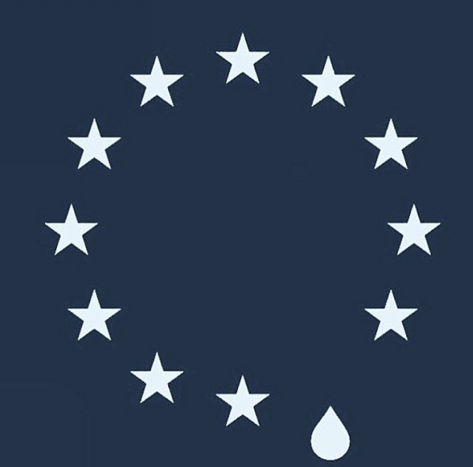Why painting London town green this Friday is a good idea, and how art will help forge our post-Brexit future
Photo credit: Kate Bush by Guido Harari
Kate Bush, Morrissey, Elvis Costello, Boy George, Kevin Rowland, Liam and Noel Gallagher, Johnny Marr, Shane McGowan and John Lydon are just some of the second generation Irish musicians who shaped British popular culture.
Morrissey wrote a song entitled ‘Irish Blood, English Heart’, and prefaced performing it onstage in Manchester on his 45th birthday by declaring: “I’m ten parts Crumlin and ten parts Old Trafford.”
The first Dexys Midnight Runners single, ‘Dance Stance’, later retitled ‘Burn it Down’ on Searching for the Young Soul Rebels, was an attack of the thick Paddy stereotype, name-checking Irish writers Oscar Wilde, Brendan Behan, Seán O’Casey, George Bernard Shaw, Samuel Beckett, Eugene O’Neill, Edna O’Brien and Laurence Stern.
Kate Bush, who channeled the Penelope soliloquy from James Joyce’s Ulysses, told me in 2011, “I’m incredibly proud of being half Irish.” John Lydon called his autobiography Rotten: No Irish, No Blacks, No Dogs. You get the idea.

In the cold light of uncertain times, musicians are also gazing anxiously into what a post-Brexit future might mean. After years of plummeting album sales, the UK’s departure from the EU will invariably make life on the road much more difficult, bureaucratic and expensive. I’m constantly crossing the Irish sea for business and pleasure, and my own work and lifestyle is bound to be effected profoundly, too.
Brexit throws a very awkward and unpredictable spanner into the works for an industry already on its knees. Whether the eventual divorce is hard or soft, everything will change when it comes to travel and movement between the UK and EU. Considering music is one of the UK’s most important exports, this could be catastrophic.
I doubt any of this ever crossed the minds of Brexit cheerleaders Nigel Farage and Boris Johnson. They strike me as pompous men who’d be suspicious and disdainful of culture. After the death of Margaret Thatcher in 2013, Michael Billington told a great yarn about Maggie arguing with the Director of the National Theatre, Peter Hall, who was constantly complaining about her lack of commitment to the arts. “‘Look,’ Thatcher said with a menacing, jabbing finger, ‘at Andrew Lloyd Webber'”. I’d imagine Farage and Johnson would share a similar attitude.
However, it is somewhat encouraging that London Mayor Sadiq Khan is hosting the biggest St. Patrick’s Festival London has ever seen with music playing an integral part of the celebrations. Liam O Maonlai, Jack L and Kila are just some of the well-known names on the bill, which will be hosted by comedian Jarlath Regan, who also presents the indispensable An Irishman Abroad podcasts. Limerick’s marvellous Rusangano Family will appear fresh from their richly deserved Choice Music Prize victory.
Irish ambassador to the UK, Daniel Mulhall, will speak alongside the Mayor at Trafalgar Square after the annual parade from Piccadilly. Mulhall is a very committed champion of Anglo-Irish culture and the cultural relationship between our islands.
The ambassador invited Kevin Rowland and Dexys to launch their last album, Let the Record Show – Dexys Do Irish Country and Soul, in the Irish embassy last June. I covered the event and interviewed Kevin for the Irish Times.
Whatever about politics, economics and trade, these islands are intrinsically intertwined culturally. The best Irish band of all time, My Bloody Valentine, are essentially a blissful musical marriage of two Irish boys and two English girls.
“I’ve always written joyful songs, it is the Irish in me,” Noel Gallagher told me in 2015. “Even if they are a bit melancholy or bleak, they always come out sounding joyful. ‘Some Might Say’ is a perfect example. I write and sing from an Irish perspective. We all sing the saddest songs with a tear in our eye, a drink in one hand, and a cig in the other.”
Ireland is now destined to become the only English-speaking country in the European Union. While I fear this is greatest challenge to the peace, prosperity and well-being of these islands since the height of the Troubles or the Second World War, I think – and sincerely hope – it mightn’t be anywhere as bad as any apocalyptic doomsday scenario.
When the shit hits the fan after Article 50 is triggered, which is looking likely to be by the end of March, we’ll need music, art and culture more than ever before to make sense of the chaos, and to bring us together to help create a better future for everybody on these islands.
